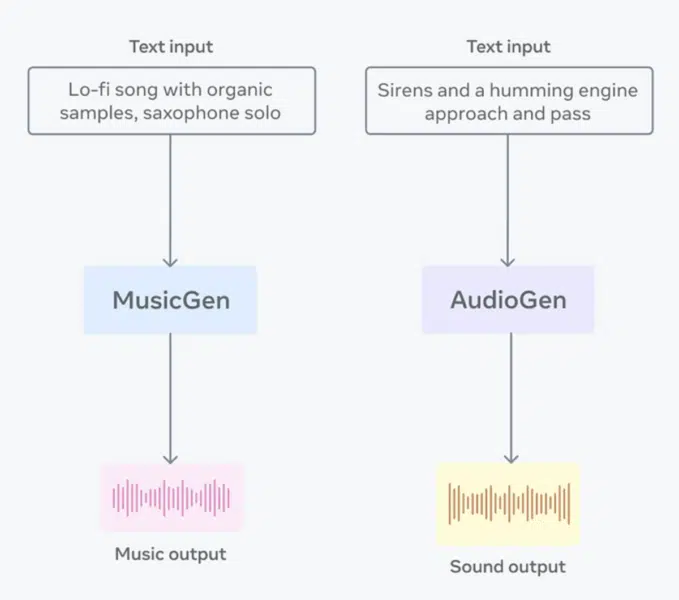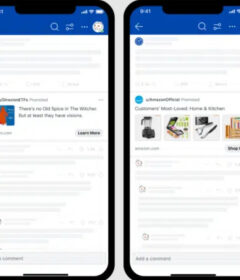Meta launches new AI tool that creates music using text prompts

AudioCraft can produce high-quality, realistic music and sound effects – but there are some risks marketers need to consider first.
Meta has rolled out a new AI tool that enables marketers to create music using text prompts.
The new system, which is called AudioCraft, uses three models, AudioGen, EnCodec and MusicGen to produce high-quality, realistic sound effects, compression and generation, in addition to music.
All music used to train MusicGen is owned by Meta and is specifically licensed for this purpose, the company added.
Why we care. Background music and sound effects can help bring an advert to life, significantly enhancing engagement, making it a vital aspect of any campaign. If marketers use AI to create music, they will have access to an unlimited number of samples that can be created instantly, potentially saving them a significant amount of time. This also means that marketers will no longer need to hire and pay for musicians, saving them money.

Cause for concern. While the thought of saving time and money will undoubtedly appeal to advertisers, there are some issues to consider before relying on AI for music and sound creation. Artists have previously accused tech giants of copyright violations when training their AI. In fact, Google was sued just last month for allegedly stealing content for AI training. If there are copyright complications, this could be seriously problematic for advertisers with financial consequences.
It’s also worth noting that if all brands were to suddenly rely on AI for music and sound creation, there is a risk that music won’t sound original, making it harder for campaigns to stand out. Issues like this can negatively impact engagement, which in turn will affect conversions.
What has Meta said? Meta posted a statement on its official blog to unveil its new technology. It read:
- “While we’ve seen a lot of excitement around generative AI for images, video, and text, audio has seemed to lag a bit behind. There’s some work out there, but it’s highly complicated and not very open, so people aren’t able to readily play with it.”
- “Generating high-fidelity audio of any kind requires modeling complex signals and patterns at varying scales. Music is arguably the most challenging type of audio to generate as it’s composed of local and long-range patterns, from a suite of notes to a global musical structure with multiple instruments.”
- “Having a solid open source foundation will foster innovation and complement the way we produce and listen to audio and music in the future. With even more controls, we think MusicGen can turn into a new type of instrument — just like synthesizers when they first appeared.”


